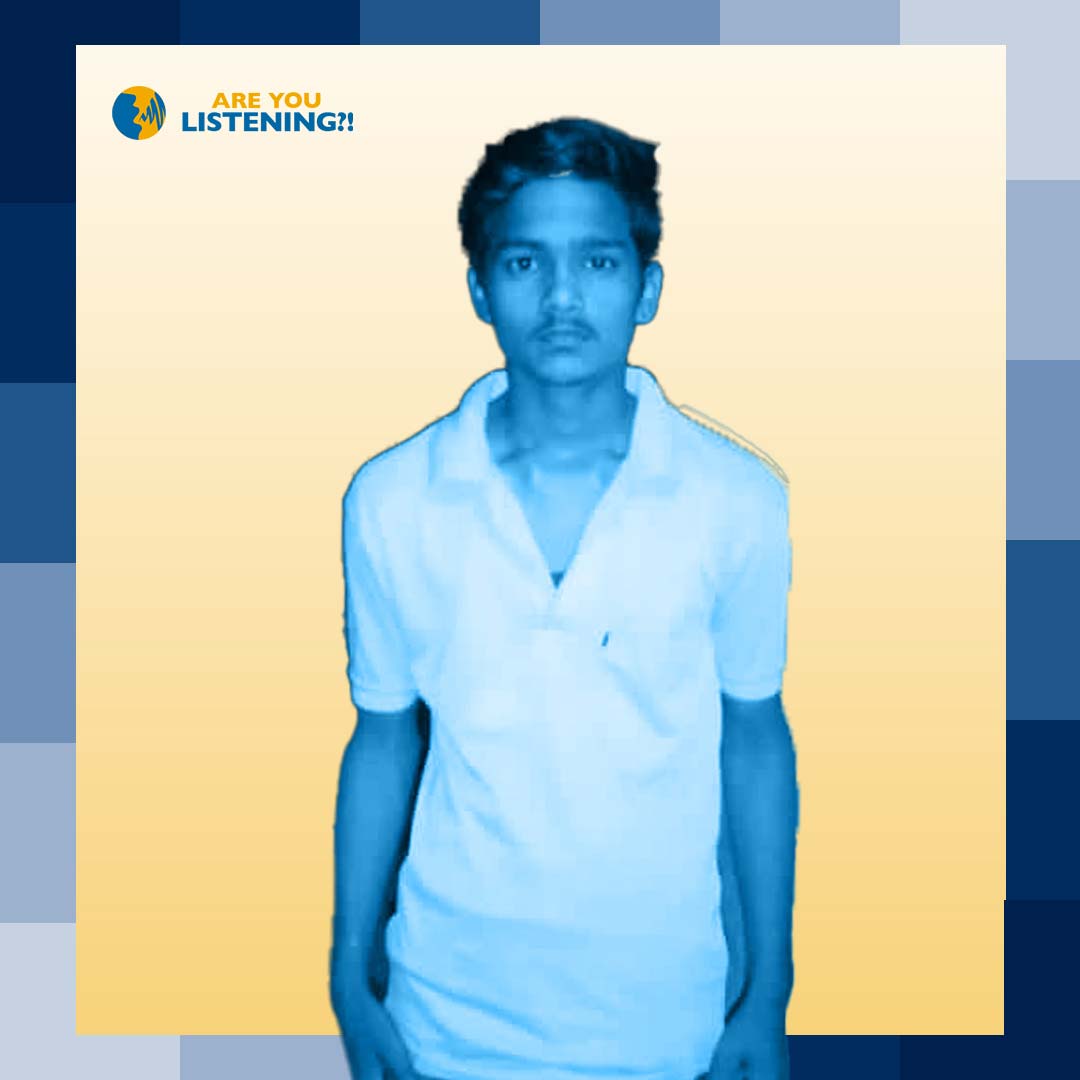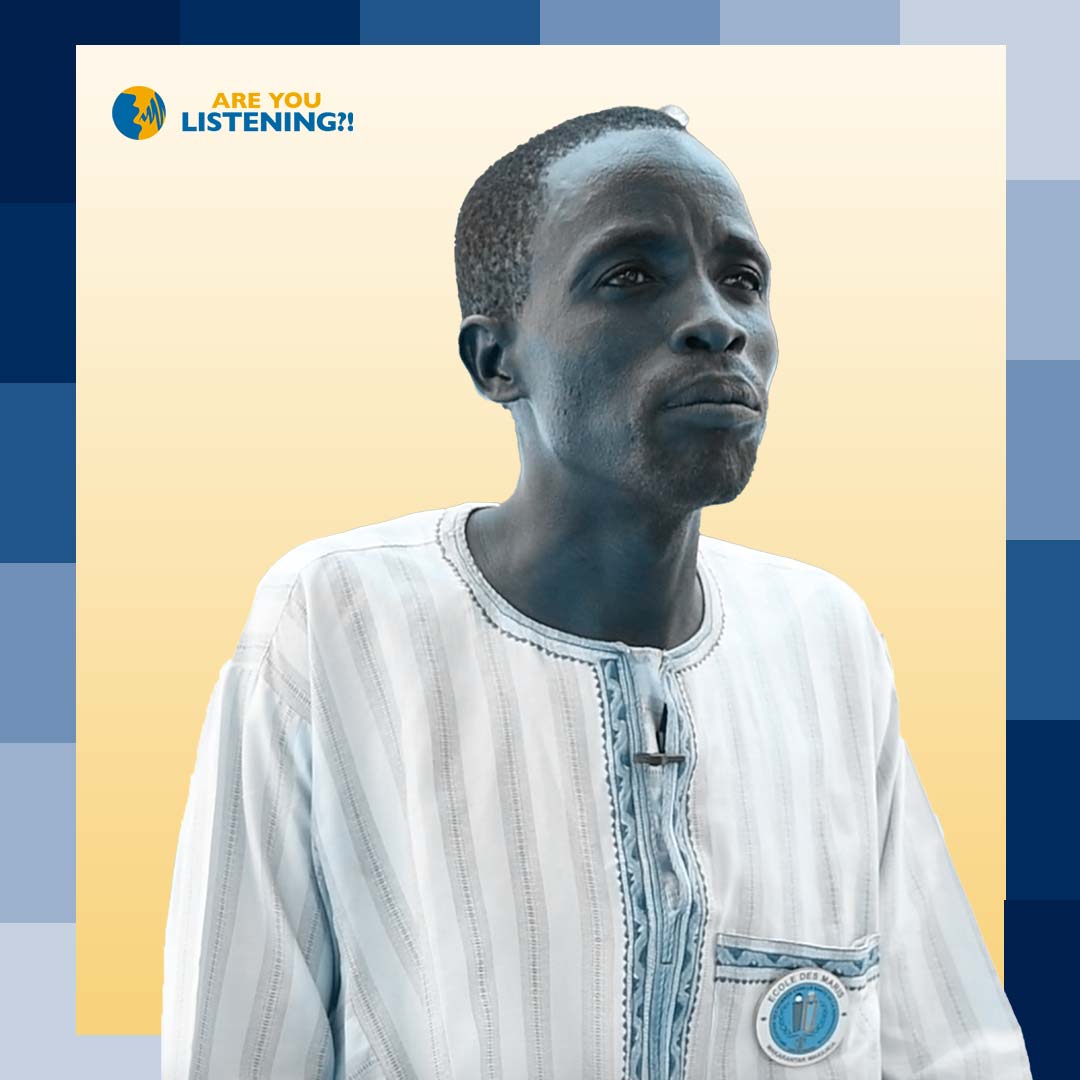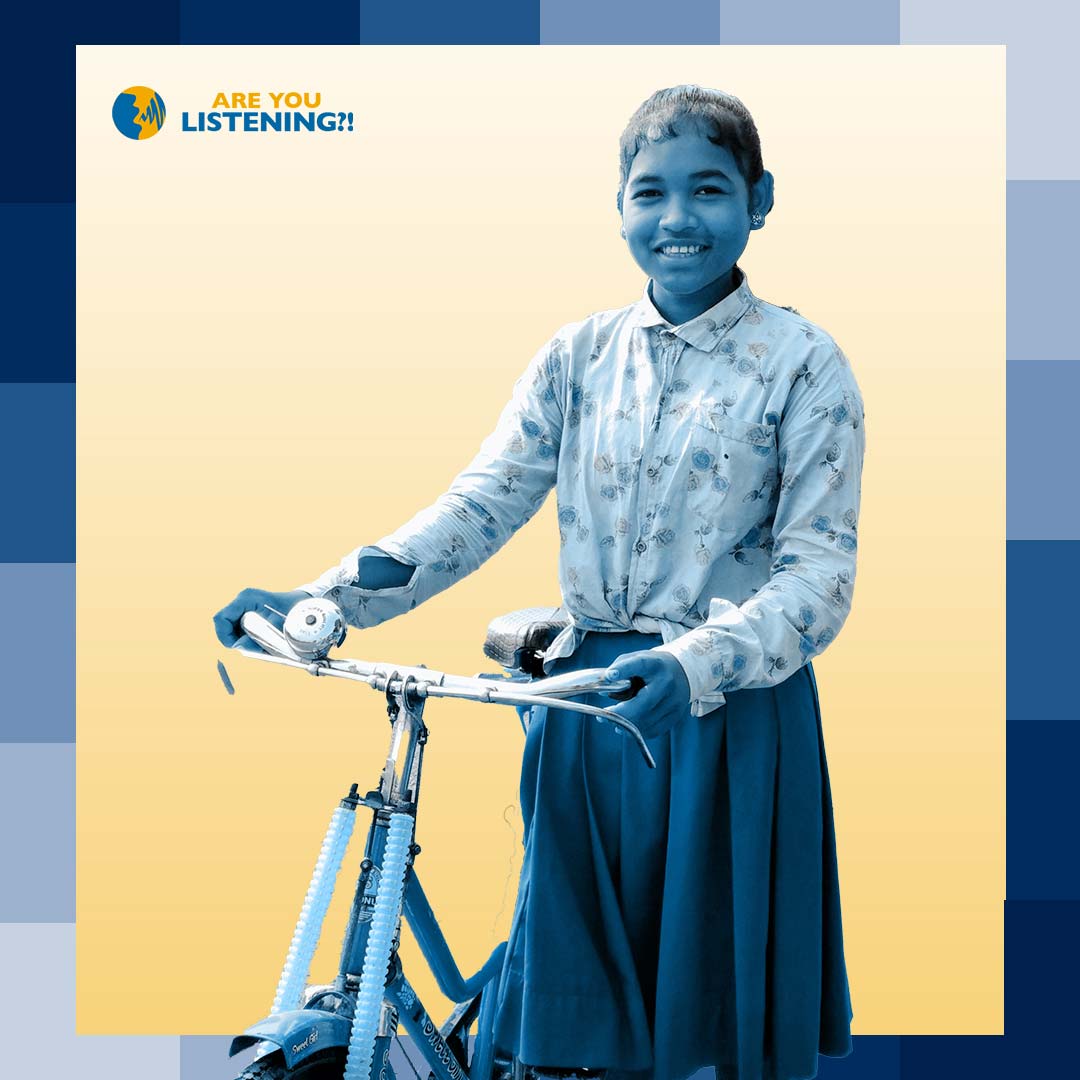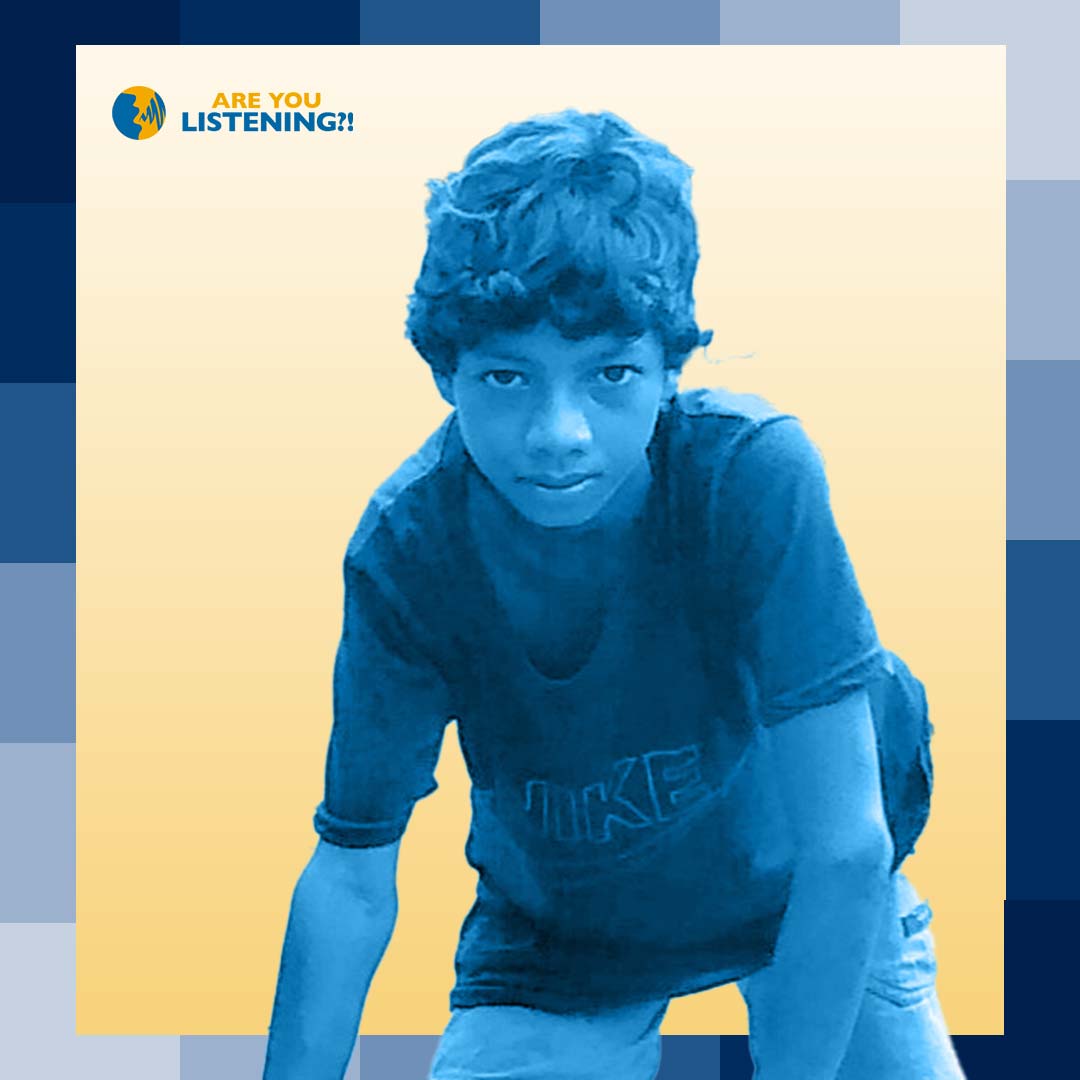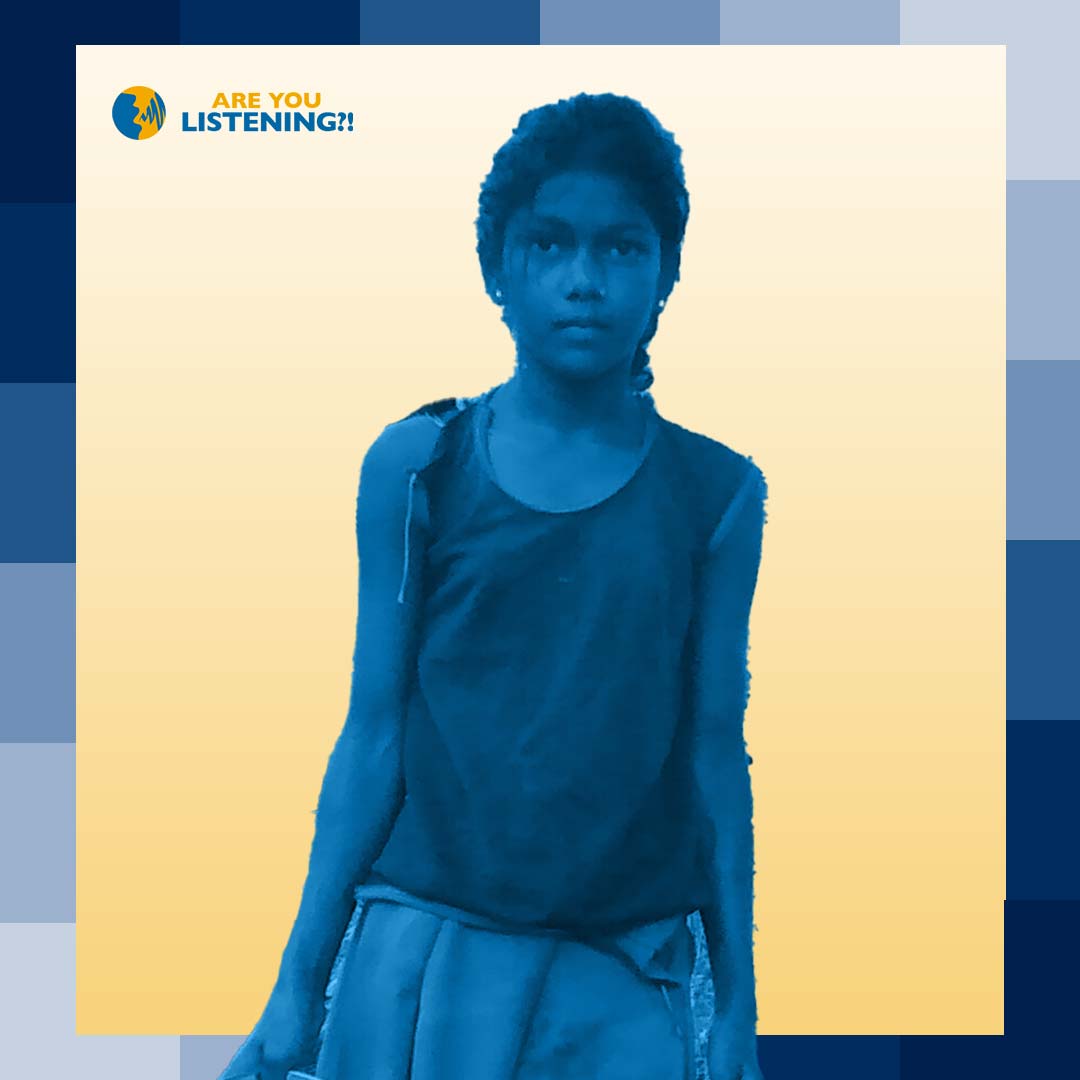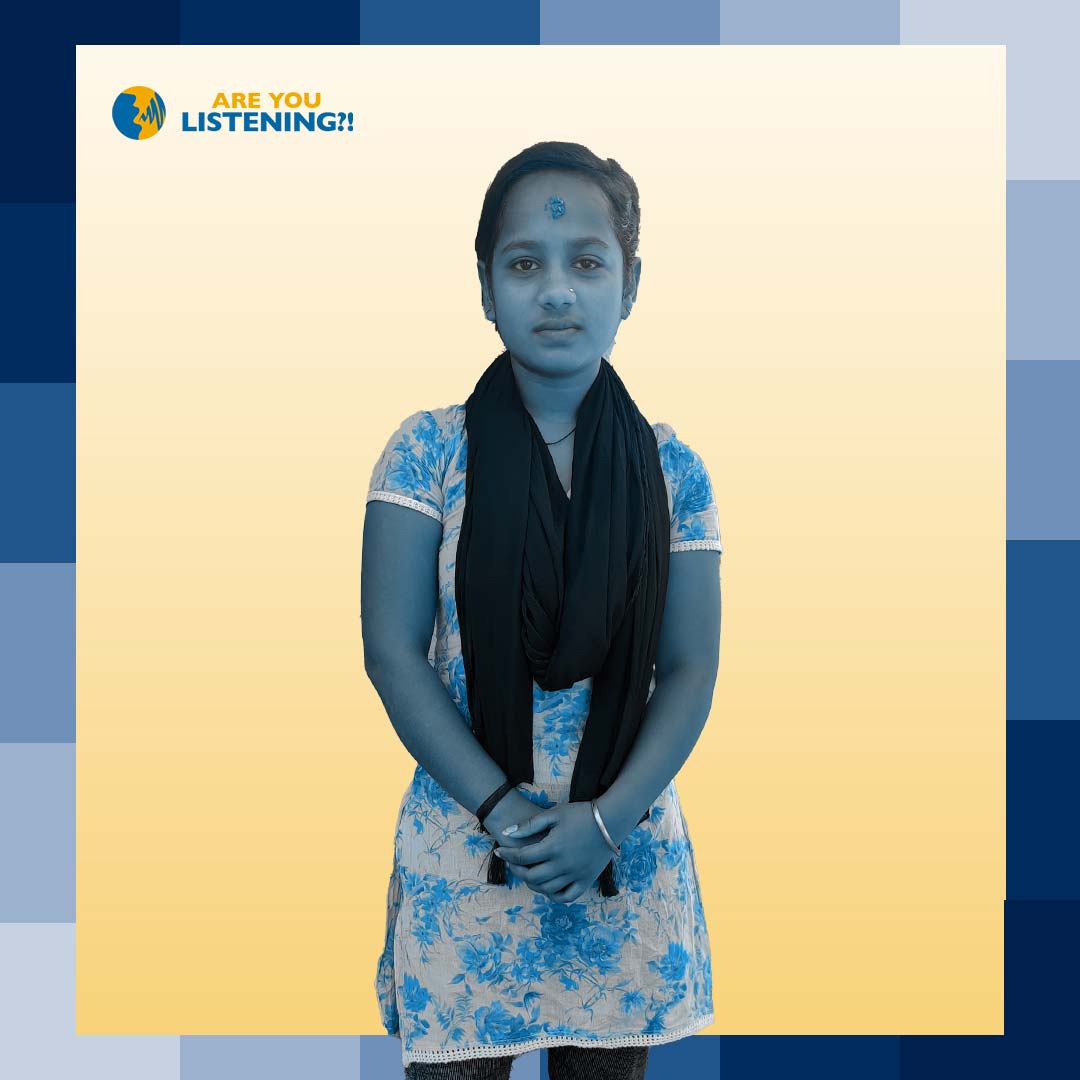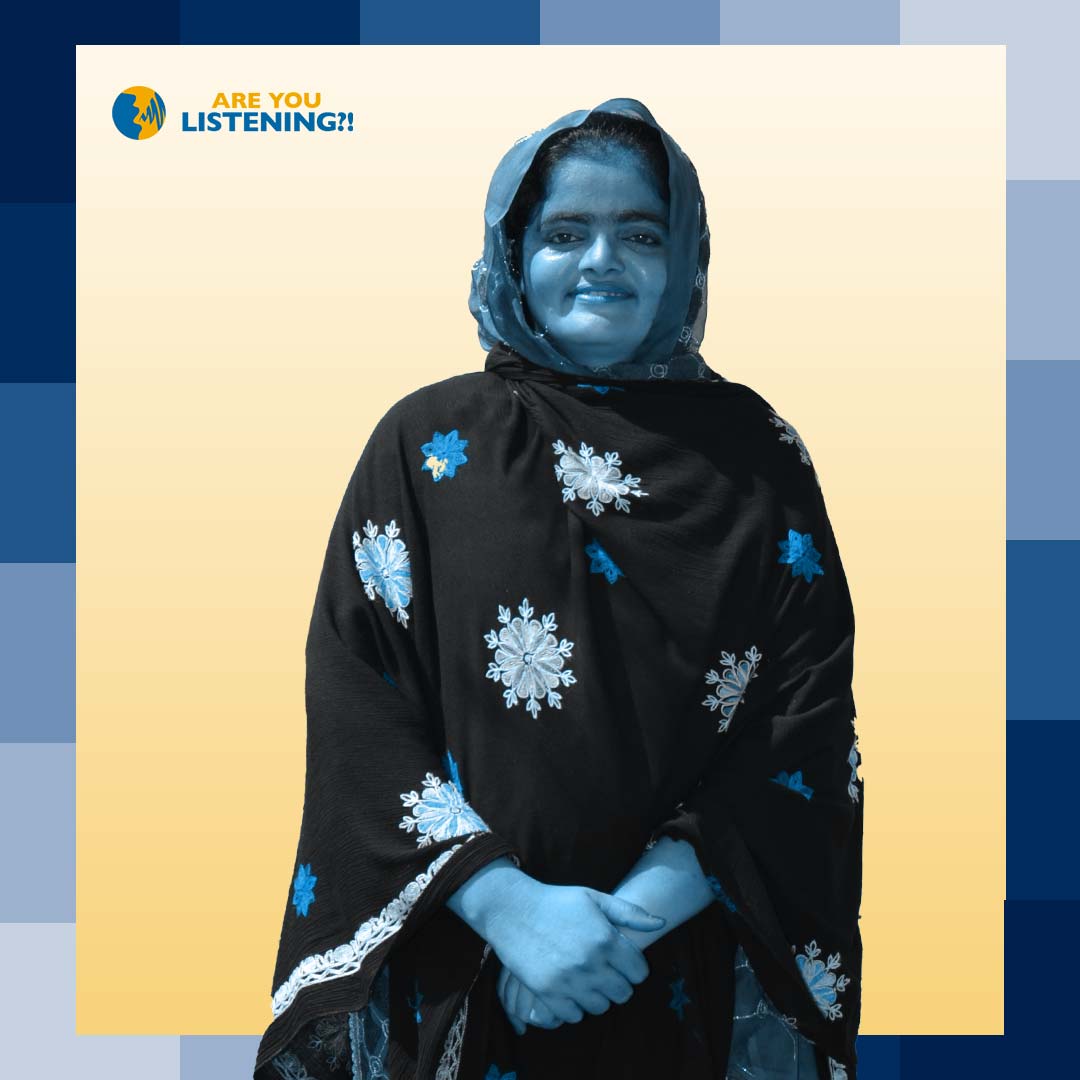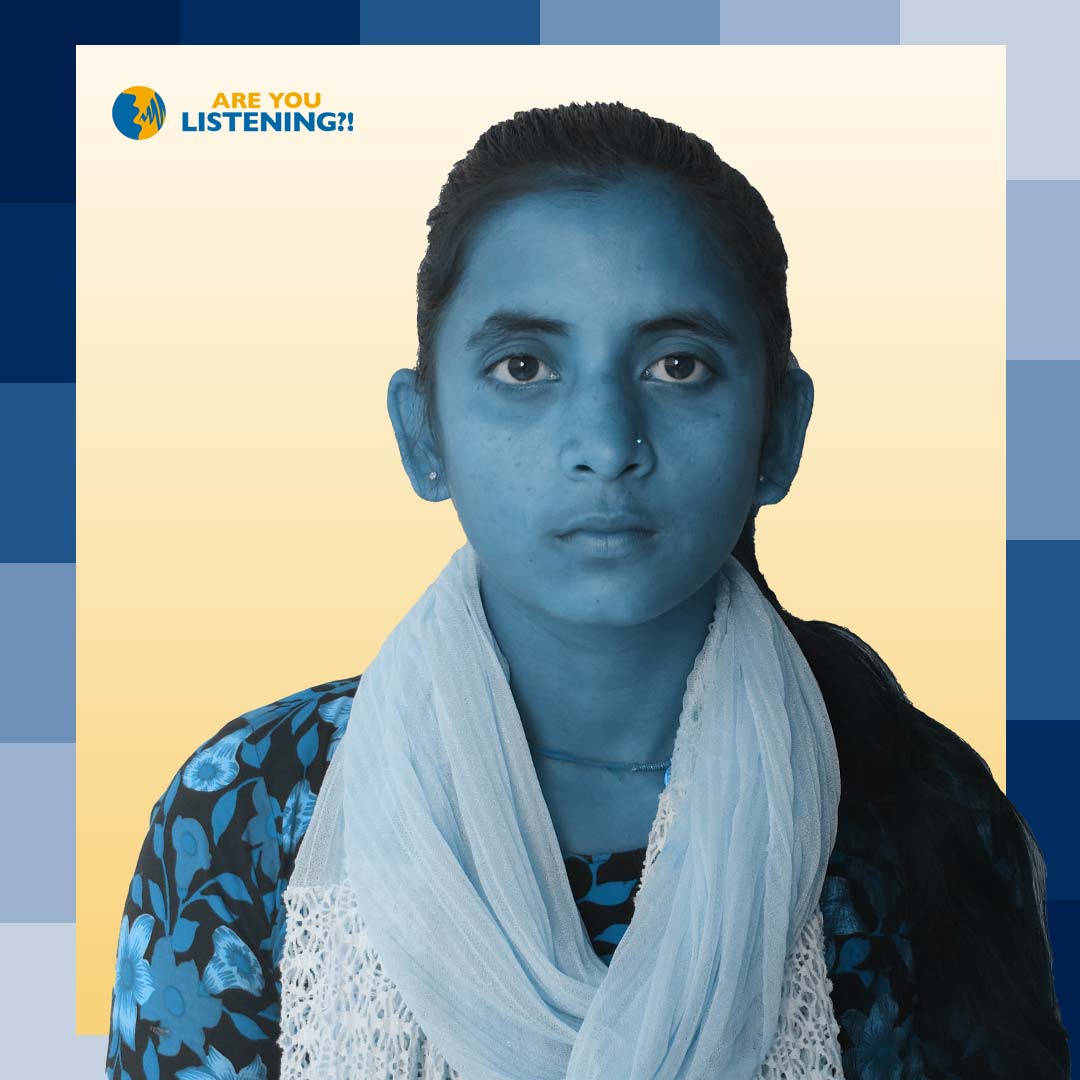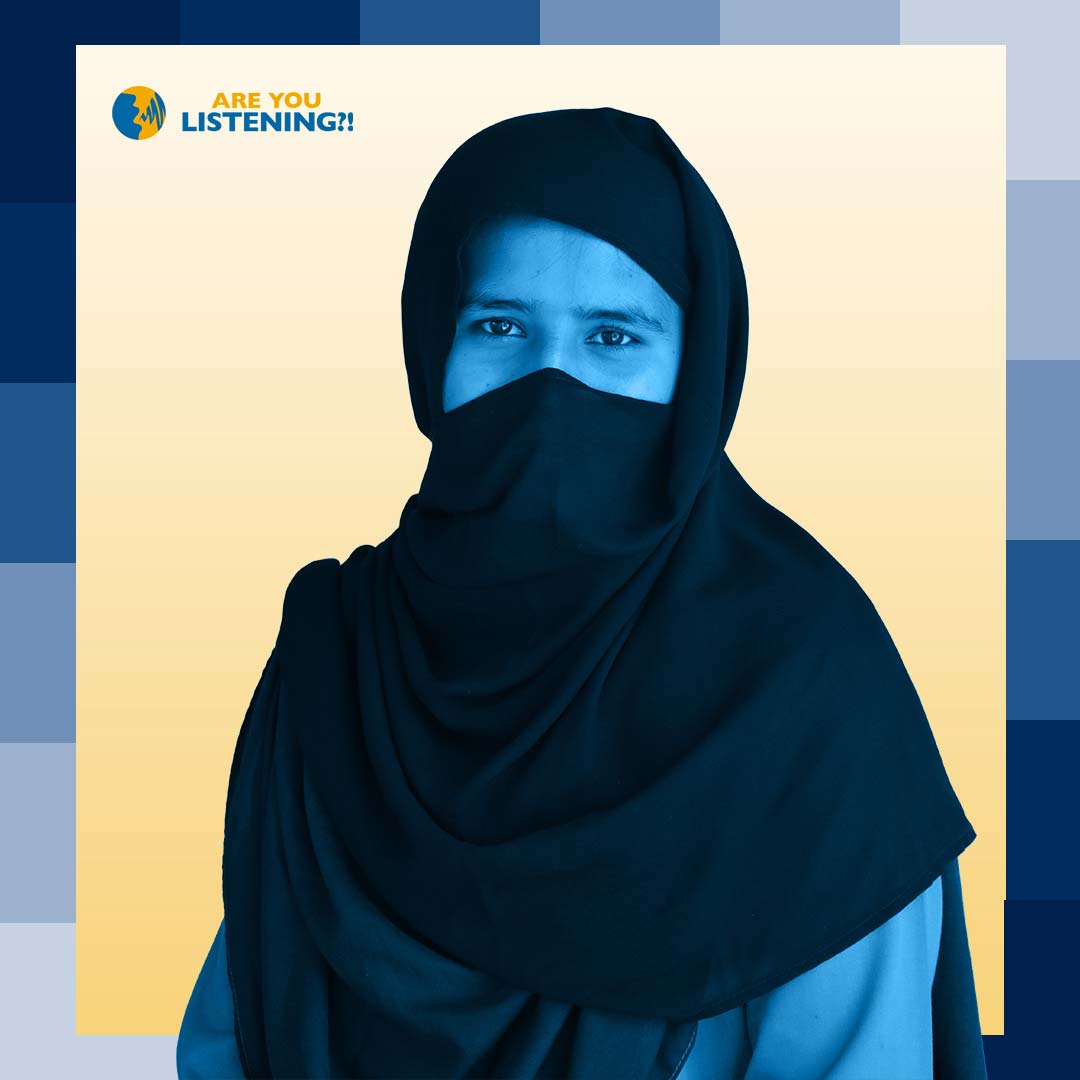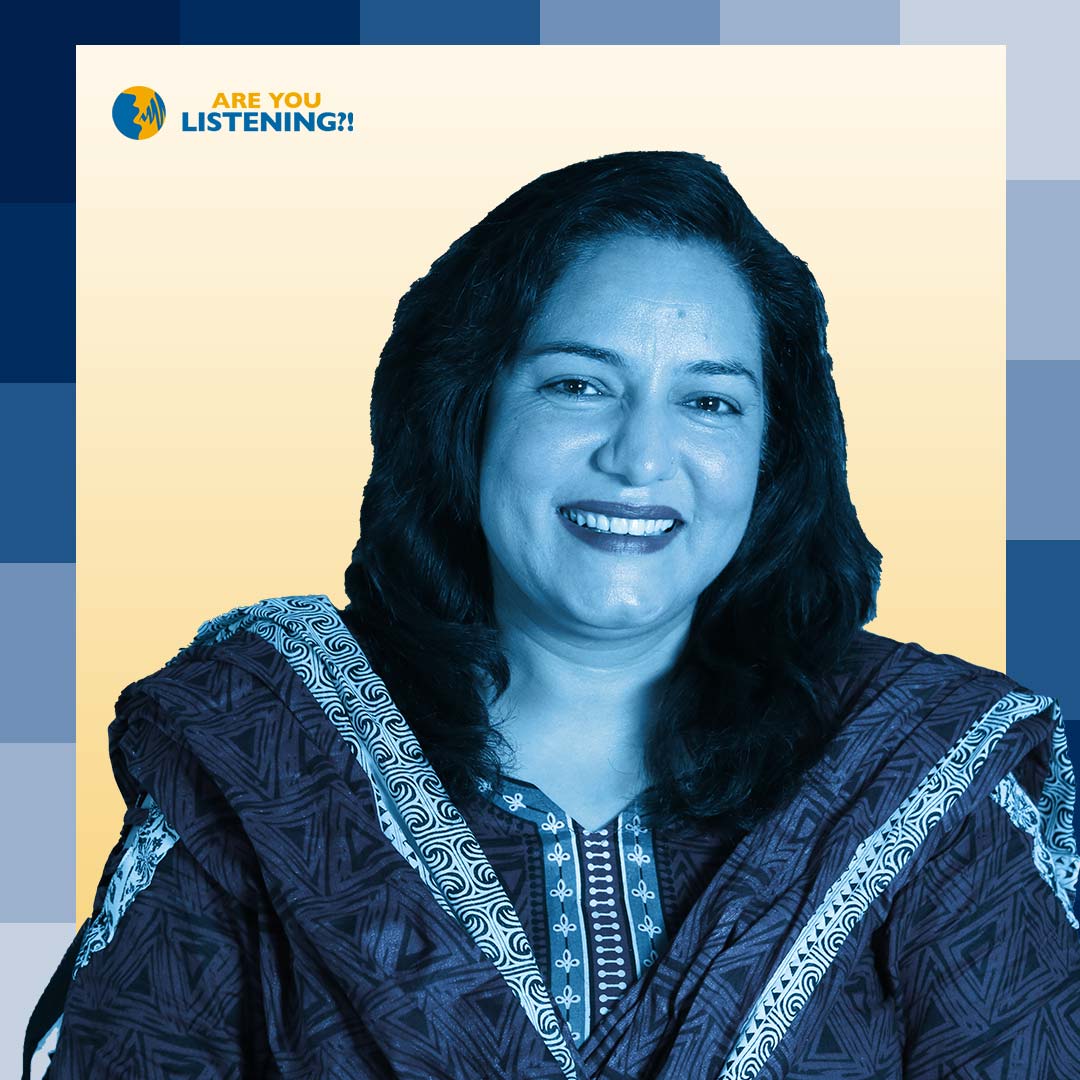Are You Listening?
Are You Listening? is an online advocacy campaign that brings attention to the absence of girls’ voices from the COVID-19 response, even though adolescent girls stand to be disproportionately affected by the pandemic. The campaign highlights the impact of COVID-19 on girls through three topics: education, sexual and reproductive health and rights, and gender-based violence. We will continue the Are You Listening? campaign during the during the 16 Days of Activism Against Gender-Based Violence.
Will you join us in amplifying girls’ voices and calling to end child marriage?
Impact
Crises often make existing gender inequalities worse. The COVID-19 pandemic is no exception. Since the onset of COVID-19, adolescent girls have been disproportionately affected in numerous ways. Girls’ education has been disrupted and many girls are less likely to return to school after this crisis. Girls are experiencing more difficulty in accessing sexual and reproductive health and rights (SRHR). Rates of gender-based violence and harmful practices like child marriage are increasing. Every year, 12 million girls are married, but by 2030, an additional 13 million child marriage are expected due to the impacts of COVID-19. In the past 10 years, significant progress has been made to reduce child marriage, but COVID-19 threatens to stall or even reverse these advancements.
Even though girls have been adversely impacted by COVID-19, their voices have been missing from the crisis response. Adolescent girls need to be meaningfully engaged by governments and local leaders in developing, adapting, and monitoring policies and programmes that tackle challenges arising from this pandemic. Girl-led and girl-focused movements require more money and support so that they can work with adolescent girls to ensure they have a seat at the table. Only once girls are included as part of the solution and their rights are upheld will real change be possible.
Take Action
To amplify girls’ voices, join us in flooding social media with stories of powerful girls during the 16 Days of Activism. Will you help us? Visit our Take Action page to learn more. Like, share, and repost these stories on social media to help us amplify girls’ voices. Tag your friends and representatives! Follow us on Twitter, Instagram, Facebook, and Linked In.
The Are You Listening? campaign also calls for governments, civil society organizations, communities, and girls to work together to end child marriage. Join us in demanding policymakers put girls at the centre of the COVID-19 response and accelerate efforts to end child marriage! Sign our call to action, it just takes 2 minutes. You can sign as an individual or as an organization – over 100 organizations have already signed!
You know the impact of COVID-19 on adolescent girls. Now take action!
Amplify Girl’s Voices
Girls are consistently excluded from decision-making roles and spaces. The response to the COVID-19 is no different. Throughout the 16 Days of Activism, we will be sharing stories to amplify girls’ voices and call on governments, CSOs, and communities to accelerate their efforts to end child marriage.
Our goal is to flood social media with stories of powerful girls for 16 Days. Will you join us in amplifying girls’ voices? Like, share, and repost these stories on social media to help us amplify girls’ voices. Tag your friends and representatives! Follow us on Twitter, Instagram, Facebook, and Linked In.
Sign the Call to Action
Join us in demanding policymakers put girls at the centre of the COVID-19 response and accelerating their efforts to end child marriage!
So far, over 100 organizations have added their name to Call to Action. Will you add yours? It takes just two minutes to sign by filling in the box to the right.
Signatures and the Call to Action will be presented online and at a series of events starting with Dutch parliamentarians in mid-December.
Producing our call to action has been a participatory process with input from our partners, and other civil society organizations. You can also read and share the Call to Action in English below, or click to read in French or Spanish. You can also adapt the Call to Action your local context by clicking here.
List of organisations
The problem
Adolescent girls living in extreme poverty were already facing enormous barriers in accessing education, and COVID-19 has only made this more difficult. Girls’ enrolment was already lower than boys and COVID-19 threatens to roll back progress on decreasing this gap. Explore more about the effects of COVID-19 on girls’ education and read and watch girls’ stories below.
We have learned from past health crises that adolescent girls often do not return to school afterwards. After this pandemic ends, 20 million girls are expected to never return to school. Disruptions of girls’ education will have lasting negative impacts on their future and their chances to become financially independent. Amisha, 16 years old from India, said that her father lost his job due to the lockdown and her family’s financial conditions have worsened.
In contexts where girls have little to no digital access girls struggle to take part in distance learning. For example, in India and Pakistan, there have been efforts to broadcast lessons on television. However, girls living in rural areas or poverty cannot access these lessons. The More Than Brides Alliance partners in Pakistan fear there will be an increased number of girls dropping out of school, which will then increase the number of early child marriages, domestic abuse, and less representation of women in the workforce. Watch the story of to learn more (available at 18th november).
Schools provide more than education; they also provide adolescent girls with a safe environment.When girls are at home instead of school, they face greater risks of early pregnancy and gender-based violence, including female genital mutilation and child marriage. These experiences make girls less likely to return to school after the crisis.
Our Calls to Action
It is critical to spread awareness of the importance of girls’ education. What causes girls to drop out of school needs to be understood and mitigated. Communities and adolescent girls themselves must be included in highlighting the importance of girls’ education.
Distance learning needs to be gender-responsive: Education needs to be provided in an equitable way, one that recognizes gender differences, biases, and issues that adolescent girls face and finds approaches to overcome these obstacles. This can be accomplished through radio outreach, sending school materials home, and creating flexible schedules for girls.
Make schools safe spaces: Batoma from Mali says “school protects all children and especially us girls.” When girls return to school, they must be safe and accessible spaces. For example, this can be done by providing free or affordable education, free meals, and ensuring access to water, hygiene, and sanitation (WASH) facilities and products.
Support girls that have undergone child marriage: Given the expected 2.5 million increase in child marriages in the next five years, married adolescent girls must also be supported in returning to school. This can be done by providing married girls with catch-up courses. Adolescent girls must not face stigma and discrimination once they go back to school.
Story of Teju
Story of Teju Teju is a member of a youth club with RSKS India. Due to COVID-19, Teju’s father was unable to work and generate income, leaving their family food insecure. Schools
Story of Abdou
Story of Abdou Abdou is a member of the Husband’s School, a group created by Save the Children Niger, a member of the More Than Brides Alliance (MTBA). Through the Husband
Story of Sulina
Story of Sulina Sulina lives with her family including her brother, sister, and parents in Jharkhand, India. People in her village mostly work in agriculture and few people work as daily
Story of Krishna
Story of Krishna Krishna is an adolescent boy who lives with his parents and siblings in Jharkhand, India. His family is comprised of 6 members. He is a student of standard
Story of Chamki
Story of Chamki Chamki lives in Jharkhand, India. She lives with her small family including her brother, parents, and grandparents. Chamki’s father is a farmer and he goes to the agricultural
Story of Amisha
Story of Amisha Amisha is 15 years old and loves to listen to music and play games. She became involved with the More than Brides Alliance partner, BVHA, in 2017 when
The problem
Women and adolescent girls already faced challenges in exercising their sexual and reproductive health and rights, or SRHR. But during the pandemic, these have barriers increased. Explore more about the effects of COVID-19 on girls’ SHRH and read and watch girls’ stories below.
Menstrual Health
The economic crisis related to COVID-19 has pushed even more girls into period poverty: when the cost of menstrual health products is too high, leaving women and girls to resort to less hygienic options. When girls don’t have the menstrual health products they need, their risks of reproductive and urinary tract infections increases and their mobility can be limited.
Sindhu from Jharkhand, India said, “We don’t have enough money for food. How can I ask [my family] to buy me sanitary napkins? So, I started using old cloth again because of the lack of availability, even though the sanitary napkins are available in the market, the price is high. I am worried about my health but what can I do?”
SRHR is an umbrella term that underlines the basic right for all to sexual and reproductive healthcare, information, products, and resources, along with the human right to make decisions about one’s body, sexual health and relationships, sexuality, and gender identity. This includes adolescent girls’ rights to access menstrual health products and their right to decide if they want to get married or have children.
Sindhu isn’t alone. Thousands of women and young girls in the rural areas of Jharkhand are in a similar situation and things may be worse than what they appear as menstrual health is often not discussed openly. Watch the story of Sindhu to learn more.
Girls themselves are also taking action and raising their voices to demand their sexual and reproductive health rights. For example, Neelam, wrote a joint letter with a group of girls to the Honourable Chief Minister of Jharkhand regarding the lack of menstrual health products available and the barriers girls were facing to access them. Girls are also making their own menstrual health products, and even producing them for others. Sarmistha from Odisha, India, and her girls’ group are making pads for themselves and are even planning to scale up their work on a commercial basis.
Lack of Services
Restrictive measures, such as lockdowns and border closures, have made it harder for girls to access SRHR services and disrupted the supply of these products. Resources for SRHR services and healthcare workers have also been shifted toward stemming the outbreak.
These measures and reprioritization have made it more difficult for women and adolescents to access SRH services, products, and information. This will have a long-term impact on girls with an expected rise in cases of early pregnancies, sexually transmitted infections (STIs), and unsafe abortions. We already can observe these effects, with reports of adolescent pregnancies increasing. Save the Children estimates that there will be an additional 1 million adolescent pregnancies as a result of the economic impact of COVID-19. This is concerning because early pregnancy has substantial negative effects on girls’ lives: it disrupts their education, leads to adverse economic effects and often child marriage. Early pregnancy also has significant health complications for adolescent girls, with pregnancy and childbirth being the leading cause of death for adolescent girls ages 15-19.
Watch the story of Takondwa to learn more.
Our Calls to Action
Continue comprehensive sexuality education (CSE): It is vital that CSE remains part of gender-responsive distance learning and that it is resumed when school reopens.
Ensure that sexual and reproductive health and rights information, services, and products remain essential and accessible: Ensuring adolescent’ girls’ access to SRHR is vital. Especially for adolescent girls most at risk, such as those that are out-of-school or married. They must be able to voice and safeguard their SRHR needs.
Story of Takondwa
Story of Takondwa Takondwa is a Program Manager with the Girl Empowerment Network (GENET), a More Than Brides Alliance (MTBA) partner in Malawi. She has been working with MTBA since it started
Story of Ameenah
Story of Ameenah Ameenah is a 19-year-old young woman from Pakistan. For the past two years, she has been giving training sessions in her village with MTBA partner Bahn Beli. After completing
Story of Pallavi
Story of Pallavi Pallavi is 15 years old and she has been a member of a youth group organized by More Than Brides Alliance partner, BVHA, for two years. In this group,
The problem
Gender-based violence (GBV) happens every day across the world. GBV is violence directed against a person because of their gender, usually women, girls, and gender non-conforming individuals. In times of conflict and crisis, like the COVID-19 pandemic, GBV has been found to increase because it deepens existing gender inequalities that adolescent girls face in their day-to-day life. As poverty increases, security and stability decrease, and initiatives to end GBV are interrupted by the pandemic, rates of GBV are expected to increase. Indeed, reporting has shown that GBV is increasing and it is estimated that for every 3 months of lockdown measures, there will be 15 million more cases of GBV.
Gender-based violence (GBV) happens every day across the world. GBV is violence directed against a person because of their gender, usually women, girls, and gender non-conforming individuals. In times of conflict and crisis, like the COVID-19 pandemic, GBV has been found to increase because it deepens existing gender inequalities that adolescent girls face in their day-to-day life. As poverty increases, security and stability decrease, and initiatives to end GBV are interrupted by the pandemic, rates of GBV are expected to increase. Indeed, reporting has shown that GBV is increasing and it is estimated that for every 3 months of lockdown measures, there will be 15 million more cases of GBV.
Lockdowns
Due to restrictive measures, such as lockdowns and the closing of public spaces, women and adolescent girls have fewer chances to leave their homes and fewer places they can go to if they live with an abuser. This puts adolescent girls at a greater risk of GBV, while simultaneously isolating them from support networks, such as their friends, communities, and service providers. Wassa, a student from Segou, Mali, said that “being deprived of school during this period of coronavirus has exposed me to behaviour related to sexual harassment.” Aminata, a 17-year-old peer educator said, “Like many other girls in the village, I am subject to sexual harassment from boys who are on endless [school] holidays.”
Increase in Harmful Practices Like Child Marriage
Included under the umbrella of GBV are harmful practices like child marriage and female genital mutilation (FGM). Every year, 12 million girls are married before the age of 18, but in the next 5 years, Save the Children estimates that an additional 2.5 million girls will be married due to the impacts of COVID-19. For the first time in almost 30 years, girls are now more and not less at risk of child marriage. Child marriage violates the human rights of girls, puts them at a greater risk of reproductive health complications, makes them more likely to live in poverty, Now more than ever, governments and civil society organizations need to recommit and accelerate their efforts to end child marriage.
Watch the stories of Saba and Donatienne to learn more.
Our Calls to Action
Make GBV services essential and support GBV support systems: GBV services must remain accessible throughout the pandemic, including adolescent girls. It is equally important that those working with adolescent girls at risk of GBV have extra support so that they can help girls with their health, psychosocial, and legal needs.
Empower community members to speak out against GBV: It is important that governments and local leaders, such as religious leaders, encourage and support community members to speak out against GBV and report suspected cases of GBV.
Find girls at risk of GBV: More efforts are required to reach adolescent girls, particularly those living in situations of conflict, displacement, and migratin. Outreach efforts must be creatively adapted to make the most of in-person and digital communication channels like social media.
Story of Maria
Story of Maria Maria is 15 years old and from Pakistan. She is the eldest sister in a family of six siblings. Her father and her brothers are all day laborers. Her brothers have studied until the 6th grade, but now they sell fruits in the village and the closest city.
Story of Anbreen
Story of Anbreen If women are given leadership skills, they have this innate capacity to lead; they only need nurturing and guidance as I saw first-hand how women mobilised themselves during the pandemic to help their communities, all by themselves For someone who has been actively working for women’s
High Level Political Forum
On 9 July the More Than Brides Alliance, in collaboration with Girls Not Brides, the Global Partnership to End Child Marriage, Her Choice Alliance, and Partners for Law in Development hosted a virtual side-event during the 2020 High-Level Political Forum.
Insecurity increases child marriage, and we expect that the COVID-19 pandemic will be no different: the United Nations Population Fund (UNFPA) estimates an additional 13 million child marriages will occur between 2020-2030 because of COVID-19.
Now more than ever, ending child marriage needs to be on the global agenda. As COVID-19 limits on-the-ground programmatic activities, changing and enforcing minimum age at marriage laws may become a more feasible child marriage prevention approach. Bringing together a global panel of program and research experts, our overall objective for this event is to raise the issue of unintended consequences of the enforcement of child marriage laws in the context of COVID-19.
Virtual Panel:
- Moderation: Esther de Vreede, Director Programme Implementation, Simavi
- Presentation by Dr Faith Mwangi-Powell, CEO Girls Not Brides – ENDING CHILD MARRIAGE IN A COVID-WORLD
- Lucía Berro Pizzarossa, Girls Not Brides – UNINTENDED STIGMATISATION OF ADOLESCENT´S SEXUAL RIGHTS AS A RESULT OF CHILD MARRIAGE LAWS
- Madhu Mehra, Partners for Law in Development India – DO PUNITIVE LAWS HELP ELIMINATE CHILD MARRIAGE – THE INDIAN EXPERIENCE
- Gerald Kato, Her Choice – A PROGRAMMATIC VIEW ON ENDING CHILD MARRIAGES IN TIMES OF COVID-19 IN UGANDA
- AJ Melnikas, Population Council / MTBA – PERCEPTIONS OF CHILD MARRIAGE LAWS IN A CHANGING LEGAL CONTEXT: QUALITATIVE EVIDENCE FROM MALAWI.
Brunch with Parliament
On the 11th of January, the More than Brides Alliance organized a Parliamentary Brunch to conclude the Are You Listening? campaign. The event invited 5 Dutch candidate parliamentarians to commit to taking forward the Are You Listening? Call to Action in their potential tenure following the Dutch elections in 2021. The Call to Action contains proposed actions related to sexual reproductive health and rights, gender-based violence, and education.
We were happy to have the following candidates present:
- Alexander Hammelburg, D66
- Anne Kuik, CDA
- Lenna Vromans, PvdA
- Nevin Özütok, GroenLinks
- Queeny Rajkowski, VVD
Alexander Hammelburg D66, Lenna Vromans PvdA, and Nevin Özütok, GroenLinks all signed our Call to Action.
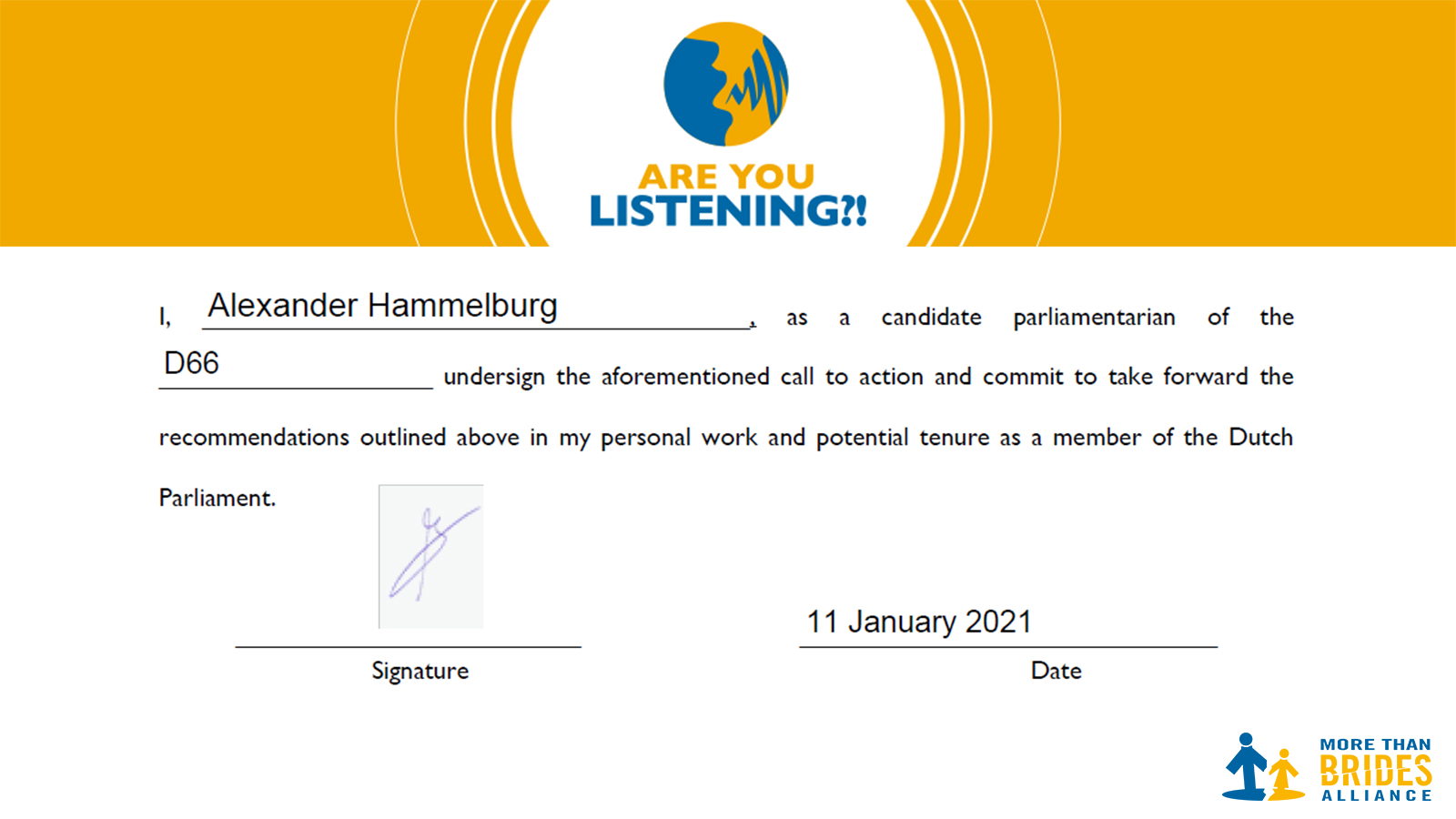

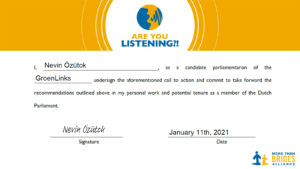
To highlight the importance of action driven by the Dutch Ministry of Foreign Affairs to end child marriage globally, the Dutch Ambassador for Women’s Rights and Gender Equality, Pascalle Grotenhuis was present. She presented the Ministry’s achievements and its vision in pushing forward the agenda to end child marriage.
The event also showcased both the More Than Brides Alliance and the Are You Listening? campaign’s impact to a broader Dutch audience of policymakers, candidate parliamentarians, individuals working at civil society and international organizations, and the general public. This was accomplished through the presentations of Sarah Harris, Alliance Coordinator, and Anbreen Ajaib, Executive Director of Bedari. The session was moderated by Esther de Vreede, Director of Programs of Simavi.
We also had attendees participate in the online event from across the globe: Bangladesh, Belgium, DRC, Egypt, Eritrea, France, India, Malawi, Mozambique, Nepal, Netherlands, Niger, Pakistan, Suriname, Sweden, Tanzania, Uganda, the UK, and the U.S.

Alexander Hammelburg (D66)
- Mentioned the importance of Dutch engagement in international collaboration and on multilateral fora.
- Highlighted the importance of financing alliances and organizations, such as the More Than Brides Alliance, “so they can work with local communities where the actual change needs to happen.”
“ I think it is up to us political parties and politicians to guarantee that the slogan ‘Leave No One Behind’ doesn’t remain what it is, just a slogan as it is often is, but we make sure that we actually effectuate it and this can only be done by maintaining our work, continuing our work, maintain the budget, and increasing the budget. So, I’m also calling on all the other political parties that are going up for the elections to commit themselves together with us, D66, in sticking to international standards of aid and making sure that the local communities themselves are provided with the means to change it, to change everything that needs to be changed, to make an end to child marriage, but also to work towards full physical and psychological autonomy for women and girls, and all the other vulnerable groups, so that we are actually leaving no one behind.”
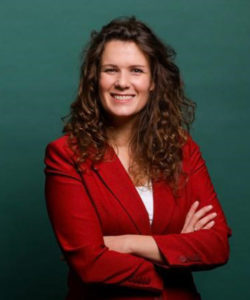
Anne Kuik (CDA)
- Underlined her role as CDA spokesperson and her role in adopting SDG 5: “the position of women and girls have always been a priority.”
- Mentioned that the impact of COVID-19 is more severely affecting women and girls, and the economic impact is regressing gender equality.
- Reiterated a regression of progress that has been made on child marriage due to the pandemic.
- Mentioned efforts together with colleague Bouali, to get 7 million more to invest in ending child marriage.
Closing Statement
“It is important we enable process for girls. I support the mission to end child marriage and I see it as my task to defend fundamental human rights for girls. And also in the fight to defeat COVID-19, the position of women and girls must be part of the strategy and it is important to keep in mind that what is good for gender equality is good for economy and society as well.”
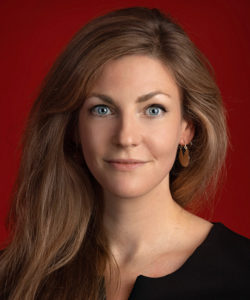
Lenna Vromans (PvdA)
- Highlighted personal visit to Malawi where she spoke with girls at risk of child marriage and those that managed to get out of their marriage: “I truly believe that only way out of this vicious circle is education.”
- Highlighted that COVID-19 shows growing inequalities among children in the Netherlands and developing countries.
- Underlined the UNFPA estimate of a 13 million increase in child marriages and the psychological and physical consequences this has for girls.
- Emphasized that child marriage is also an issue of safety and security for girls and it is necessary to find ways to reach these girls
“I want to highlight the part of this Call o Action that calls for finding new ways to reach girls at risk of GBV by identifying new ways to reach out to them because I believe that international and specifically local NGO’s could play a crucial role in this.” “I feel honoured to sign this call for action on behalf of the Dutch Labour Party. Me and my fellow party members are committed to take forward these recommendations and thereby commit to ending the harmful practice of child marriage. I am looking forward to working together with other political parties on all sides of the political spectrum because I truly am convinced that we can reach more by strengthening our forces.”
Closing Statement
“Once again, I’m honoured to sign this call to action on behalf of the Dutch Labour party. We believe that our international development policy should give special attention to those who are most vulnerable and marginalized and promoting child rights should therefore be at the core of our decision and policymaking, always. Putting child rights first also means committing to ending child marriages by supporting education programmes for young girls. And fight against gender-based violence and invest in identifying girls that are particularly vulnerable, such as those living in situations of conflict and migration. Last but not least, we need to keep raising awareness on the effect of the COVID-19 pandemic for young girls and potential child brides in developing countries. Also, when hopefully in the year ahead we in the Netherlands are celebrating our way out of the pandemic we should not lose eye for the direct and the long-term impact of the pandemic for the vulnerable girls worldwide.”
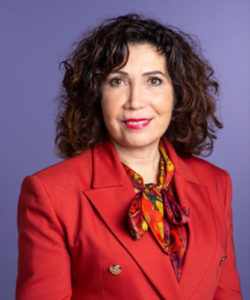
Nevin Özütok (GroenLinks)
- Emphasized child marriage as a key issue in Turkey, the Netherlands, and globally.
- Highlighted that there are 250 cases per year of Dutch girls being married abroad. Underlined her previous efforts to put forward a bill to make it easier to end forced child and adult marriages in the Netherlands.
- Highlighted the importance of supporting alliances and organizations working on child marriage internationally and in the Netherlands, along with the importance of the Netherlands ending child marriage worldwide through development cooperation.
- Also noted the need for a better budget to make this possible.
“I think it’s important that the Netherlands needs to support women and girls that are a risk group for child marriages.” “The Dutch embassy plays an important role in this whole problem, they are essential in supporting victims of child marriage in the countries they are active in.” “I support this call to action and will do my best to keep fighting for legislation to stop child marriage here in the Netherlands […] and I want to work with all my colleagues on this subject.” “I’m very happy to see my colleagues in the parliament, but also in the future, that are also engaged with this subject and I truly hope this Brunch will raise the necessary awareness to keep this subject alive in the parliament so that we can bring true change with each other. So, we can one day live in a world without child marriage and forced marriage.”

Queeny Rajkowski (VVD)
- Underlined the role of businesses in supporting women and girls and her personal work in supporting girls learning to code in India and the U.S.
- Highlighted her efforts in Utrecht, where local political parties started a collaboration with the UN to share knowledge to ensure the safety of women and girls in public spaces.
- Noted a former VVD member has taken steps to ensure Dutch embassies have knowledge, tools, and budget to recognize child marriage of Dutch children abroad.
- Emphasized the work of two current parliament members Jeroen van Wijngaarden and Bente Becker to not recognize child marriages abroad in the Netherlands.
- Also highlighted, that in parliament there are efforts to criminalize illegal marriages
“It is really important that people in Utrecht, the Netherlands and but also all over the world can live, work, and love in a way that fits their needs with control over their own body and their own future.” “Unfortunately, there is still cultural and religious oppression for girls worldwide, but also for some girls and women here in the Netherlands and the VVD wants to be alert everywhere where freedoms are affected: whether it concerns force marriages, arranged marriage, genital mutilation, not being allowed to work, not having a bankcard, etc. I want to fight for women to decide on their own lives.” “I’m looking forward to working together with each and every one of you. I hope that even during this global pandemic we will keep an eye on everything that we have worked so hard for, especially women’s rights and children’s rights.”
Closing Statement
“For me the most important thing is, when we focus on empowering girls and women in the Netherlands, but also all over the world education, digital tools, all those things can help when it comes to empowerment, and we need to focus not only with all these things politically, but organizations too, and also when it comes to businesses focus on protecting our girls here but also abroad. I just want to end, with the thing that I said before, but for me it is so important that you can live, work and love the way that you feel that fits you and you have control over your body.”
